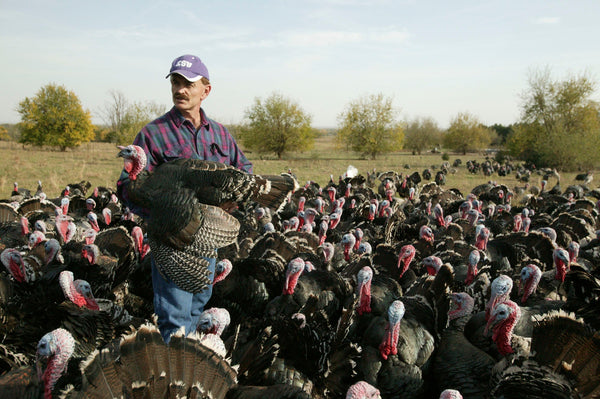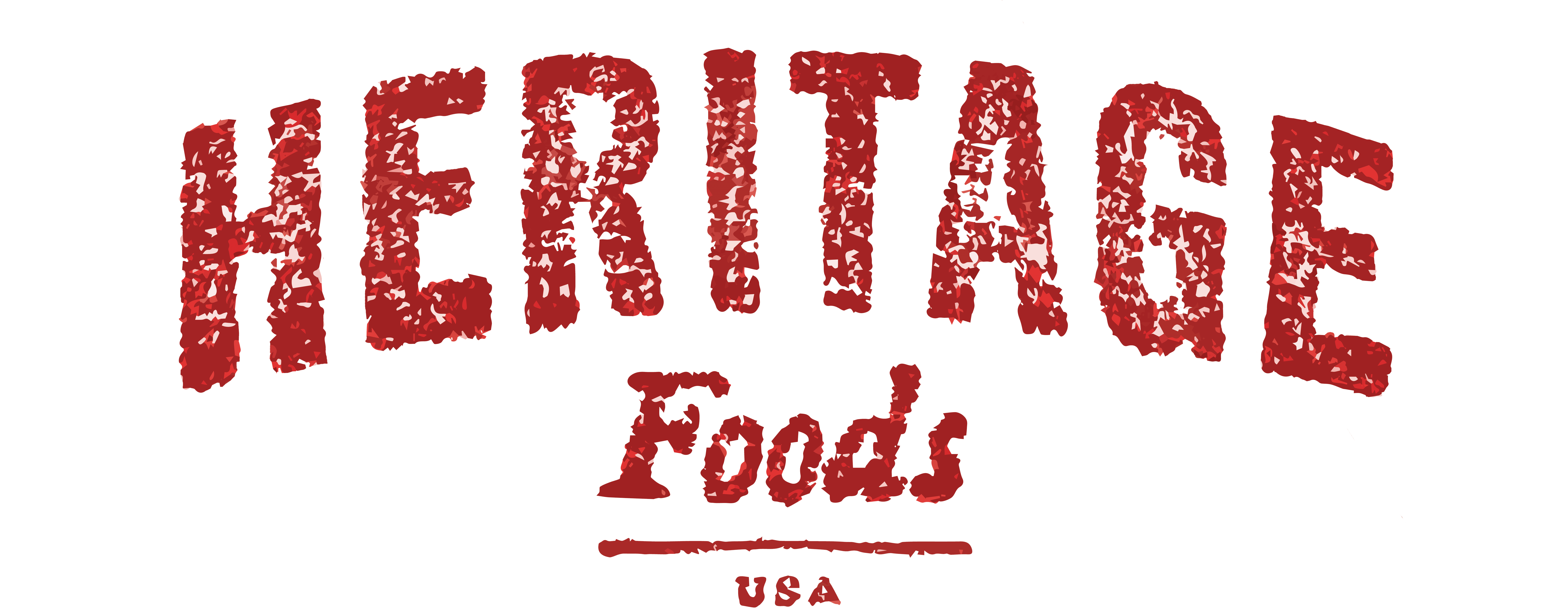
Heritage Turkey Premiere: An Interview with Frank Reese
“I have baby turkeys everywhere!”
It’s that time of year, summer in Kansas, and the heat is rising. “Turkeys have to be hatched before June to be ready for Thanksgiving,” says Frank Reese. “But these birds do real well in the heat – they aren’t morbidly obese, so they can handle it. And unlike on an industrial farm, they have trees and shade and get plenty of fresh water… commercial turkeys suffer a lot in the heat. Those birds have been genetically selected to grow as fast as possible.”
“A turkey is no better than the farmer behind it. And the genetics, of course,” says Frank, whose turkeys are one of the only flocks in America to receive certification by the American Poultry Association as purebreds, standards that were set in 1873.
“The biggest thing this year is that we’ve added three new farms to meet a bigger demand. We never seem to have enough — hopefully this year if everything goes well we’ll have twice as many turkeys as last year. But it’s still a drop in the bucket — our four farmers together are going to raise what one big commercial plant will do in a week
“What people don’t realize that when you send turkeys to get processed, they don’t all come out as birds in a bag — some birds are bruised and you can’t sell it as a whole Grade A bird. Truthfully we lose very few turkeys to cosmetic things — but to the big guys, they don’t care as much about their animals because they don’t make money off of whole turkeys, they make money off of deli meat. For an industrial producer, that’s where the money is. For them a whole turkey at Thanksgiving is like a giveaway. But when that turkey you usually sell for 99 cents a pound is instead smoked and put in an eight ounce package that now costs five dollars, you’re now selling that same bird for ten bucks a pound. And that’s why they only sell hens as whole birds — their toms they get up to 40 lbs in 14 weeks and sell as deli meat.”
An industrial turkey farm can get a 20 lb. hen in 12 weeks, or a 40 lb tom in 14 weeks. My hens, in 12 weeks only weigh 7 or 8 lbs – and we won’t process them till 24 or 28 weeks when their live weight is 15-16 lbs. My toms — in 24 weeks weigh 24 lbs— a commercial factory turkey in that much time would weigh 44 lbs, and they don’t quit growing. They’ll get to 50 – 60 lbs and weigh too much for their legs to carry. I don’t lose any turkeys because of obesity because I haven’t selected them to be so fat that they cant live.
“The industry has made their money off of uniformity… there can be no variance, no difference. My turkeys don’t all come out the same – it is a totally different system.
“All the industrial turkeys have salt water added – they call it flavor enhancers – but sometimes its more than just salt. They figure most people don’t know how to cook a bird properly, and they figure it will keep the turkey from turning into dry leather. The truth is that because they raise these birds so fast and kill them so young, they don’t develop a layer of fat. My birds are harvested at a normal age and maturity, and having that maturity brings taste, flavor, texture. The industry has removed that — what people are used to now, the taste of turkey they think they love, is mostly just added salt.
Long-time Heritage customers know that we got our start selling Frank’s turkeys, and our relationship with him truly is the cornerstone of our business. Frank can count among his fans Alice Waters, who says “These birds are without a doubt the tastiest birds you can possibly serve,” and Mario Batali, who proudly claims “I’ve served these birds for my Thanksgiving every year for the past 12 years and always will.”
Frank is a true hero of the heritage food movement — he is the first and one of the only sustainable commercial farmers to receive certification by the American Poultry Association, and the USDA, for his birds as purebreds— and he has been featured in publications ranging from The New York Times to National Geographic. His story is the Rosetta Stone of sustainable farming, and the reason why when it comes to meat, the word “heritage” is synonymous with “heirloom.” Good Shepherd turkeys are the oldest line of turkey in America, 100 percent antibiotic free, and pasture raised on the Kansas prairie.
The post Heritage Turkey Premiere: An Interview with Frank Reese appeared first on HERITAGE FOODS USA.
